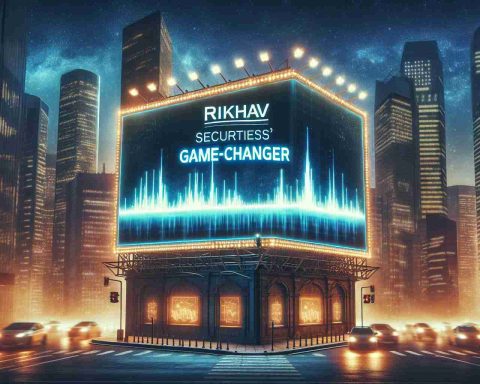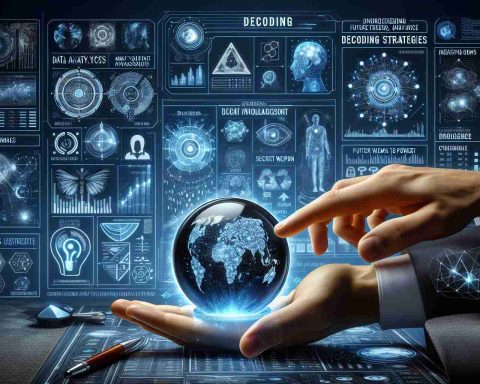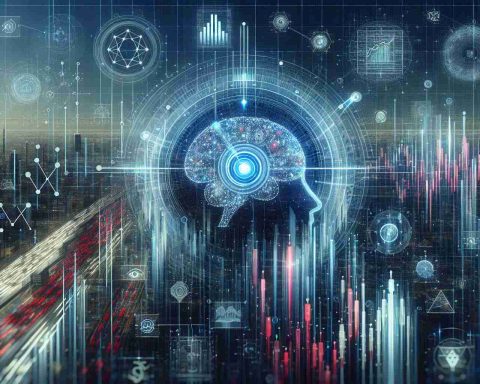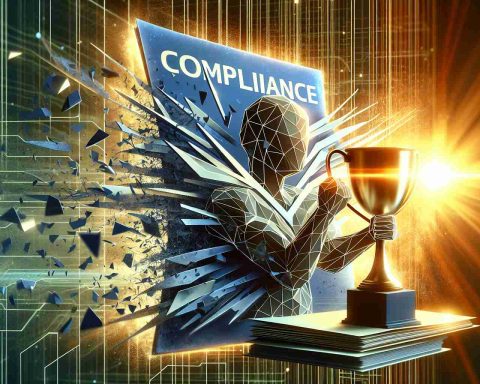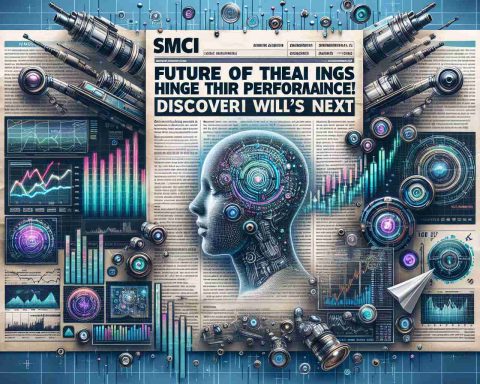In the ever-evolving landscape of the English language, a new phenomenon known as “lnth” is catching the attention of linguists and technophiles alike. While the term might seem alien at first, its emergence could signify a shifting paradigm in how language and technology intersect.
What is ‘lnth’?
“Lnth” refers to a hypothetical linguistic trend where common English words undergo abbreviation without losing their intended meaning, predicated upon patterns seen in digital communication. A simple example would be the removal of vowels, something already popular in text messaging and social media, where “length” becomes “lnth”.
The Impact of Technology
The rise of AI-driven text prediction and autocorrect features has encouraged more concise, efficient forms of communication. As artificial intelligence continues to evolve, it influences how we construct our language, prioritizing brevity and speed without sacrificing clarity.
Why It Matters
While some purists may resist changes like “lnth”, this trend opens doors to the future of global communication. English, increasingly used in international business and technology, might benefit from these streamlined forms. Such linguistic shifts could lead to new algorithms focusing on comprehension accuracy, making technology even more integral to human interaction.
The Future Outlook
As “lnth” and similar phenomena gain traction, educators and software developers must adapt to these changes, considering how they might influence learning and communication technologies. The future of English promises to be more adaptive, efficient, and integrated with digital platforms, paving the way for a more interconnected world.
The Rise of ‘Lnth’: A Gateway to a More Sustainable Future?
The emergence of the “lnth” linguistic trend signifies a fascinating intersection of language and technology, potentially reshaping our communication landscape and offering unexpected benefits for the environment, humanity, and the economy. Understanding and embracing these changes not only provides insight into our linguistic future but also hints at broader implications for our planet and society.
Environmental Impact and Efficiency
The environmental implications of “lnth” may seem indirect, but the trend aligns with efforts to reduce our carbon footprint. Digital communication, although intangible, has a significant energy cost—data centers powering emails, social media, and web services consume vast amounts of electricity, contributing to greenhouse gas emissions. Abbreviated language like “lnth” requires less data to be transmitted and processed, leading to marginal but impactful reductions in energy consumption across large scales. As the trend grows, this could culminate in considerable energy savings, thereby supporting broader sustainability goals.
A Global Connection and Technological Advancement
“Lnth” serves as an example of how technological innovation can influence language, a universal human trait. As artificial intelligence and language prediction algorithms advance, they become integral in supporting clear communication across diverse populations and linguistic backgrounds. Such integration paves the way for seamless global interactions, fostering cultural exchange and mutual understanding. As a tool for inclusivity, abbreviated language forms could bridge gaps where traditional language barriers exist, facilitating international diplomacy, education, and business.
Economic Implications and Future Workforce Dynamics
The economy stands to benefit from the increased efficiency in communication heralded by “lnth”. Companies often measure success by the speed and clarity of their internal and external communications. By adopting more efficient language, businesses can improve productivity, reduce misunderstandings, and enhance customer satisfaction. Moreover, as digital communication becomes more embedded in workplaces, there is a growing demand for tools and systems that prioritize brevity and precision, potentially stimulating growth in tech sectors focused on these innovations.
Shaping Humanity’s Future
The evolution of language reflects the broader societal changes that humanity experiences, and “lnth” is no exception. This trend, driven by technology, foreshadows a future where human interaction is increasingly mediated by digital platforms. The resulting landscape might be one where humans have more time and cognitive resources to dedicate to creative, strategic, and empathetic endeavors, as rote communication tasks become more streamlined and automated.
Furthermore, the adaptability encouraged by trends like “lnth” can prepare us for the rapid technological transformations predicted in the coming decades. Developing flexible communication skills may be crucial for navigating environments dominated by artificial intelligence, virtual realities, and other advanced technologies.
In conclusion, while “lnth” may appear to be just a quirky linguistic shift, its potential to positively impact the environment, the global economy, and humanity at large suggests that such trends could be fundamental to shaping a sustainable and interconnected future. The path forward may demand a balance between traditional language practices and innovative efficiency, ensuring that technology complements rather than replaces our rich linguistic heritage.
Lnth: The Future of Linguistic Evolution in the Digital Age
In the rapidly advancing realm of language and digital technology, the intriguing phenomenon of “lnth” has begun capturing the interest of both linguists and technophiles. Although the term might sound unfamiliar, “lnth” heralds a significant transformation in the merging of language efficiency and technological progress.
Unraveling the Mystery of ‘Lnth’
“Lnth” stands for a unique linguistic trend where common English terms are truncated while maintaining their intrinsic meaning. This is largely driven by trends in digital communication that emphasize brevity. For instance, in digital dialogues, vowels are often omitted, transforming “length” into “lnth.”
Technological Catalysts
Advancements in artificial intelligence, particularly in text prediction and autocorrect, have incentivized the development of more succinct communication methods. AI encourages brevity and efficiency, reshaping our language while maintaining clarity and understanding.
The Importance of Linguistic Efficiency
While traditionalists might balk at changes ushered in by trends like “lnth,” such shifts cannot be underestimated. With English playing a pivotal role in global business and technology, streamlining communication could significantly enhance international interactions. This realignment can also boost AI-driven comprehension algorithms, further embedding technology into routine human communications.
Innovations and Trends
As AI and digital technologies continue to impact linguistic practices, we can observe several emerging trends and innovative uses:
– Adaptive Learning and Education: Educational platforms may start incorporating “lnth” and similar trends to make learning more in tune with current communication patterns. These platforms are increasingly leveraging AI to tailor personalized learning experiences.
– Enhanced Digital Communication: Messaging apps and social media platforms may further integrate abbreviated language features to align with users’ demand for speed and convenience.
– Algorithm Development: Future language-processing algorithms may prioritize understanding these truncated words, enhancing AI’s ability to interpret concise language while maintaining accuracy.
Anticipating the Future
With the growing acceptance of “lnth” and its variants, educators, software developers, and businesses must stay ahead of these changes. The adaptability of English language technology promises a future where communication is more efficient and integrated, making interactions in our increasingly digital world seamless.
The Challenges Ahead
Nonetheless, there are limitations and challenges:
– Misinterpretations: As with any linguistic shift, there’s an initial risk of misinterpretation. Until familiarity grows, some users may find these abbreviations confusing.
– Cultural Resistance: While some embrace change, others may resist, arguing that such abbreviations contribute to language decay.
– Technical Integration: Developers must carefully integrate these trends into existing platforms without compromising user experience.
Conclusion
The evolution of language through trends like “lnth” illustrates the dynamic interplay between communication and technology. By understanding and adapting to these changes, we can harness the best of both worlds, creating a more interconnected and efficient global communication ecosystem. For more insights into the future of language and technology, visit the Linguistic Society of America.



